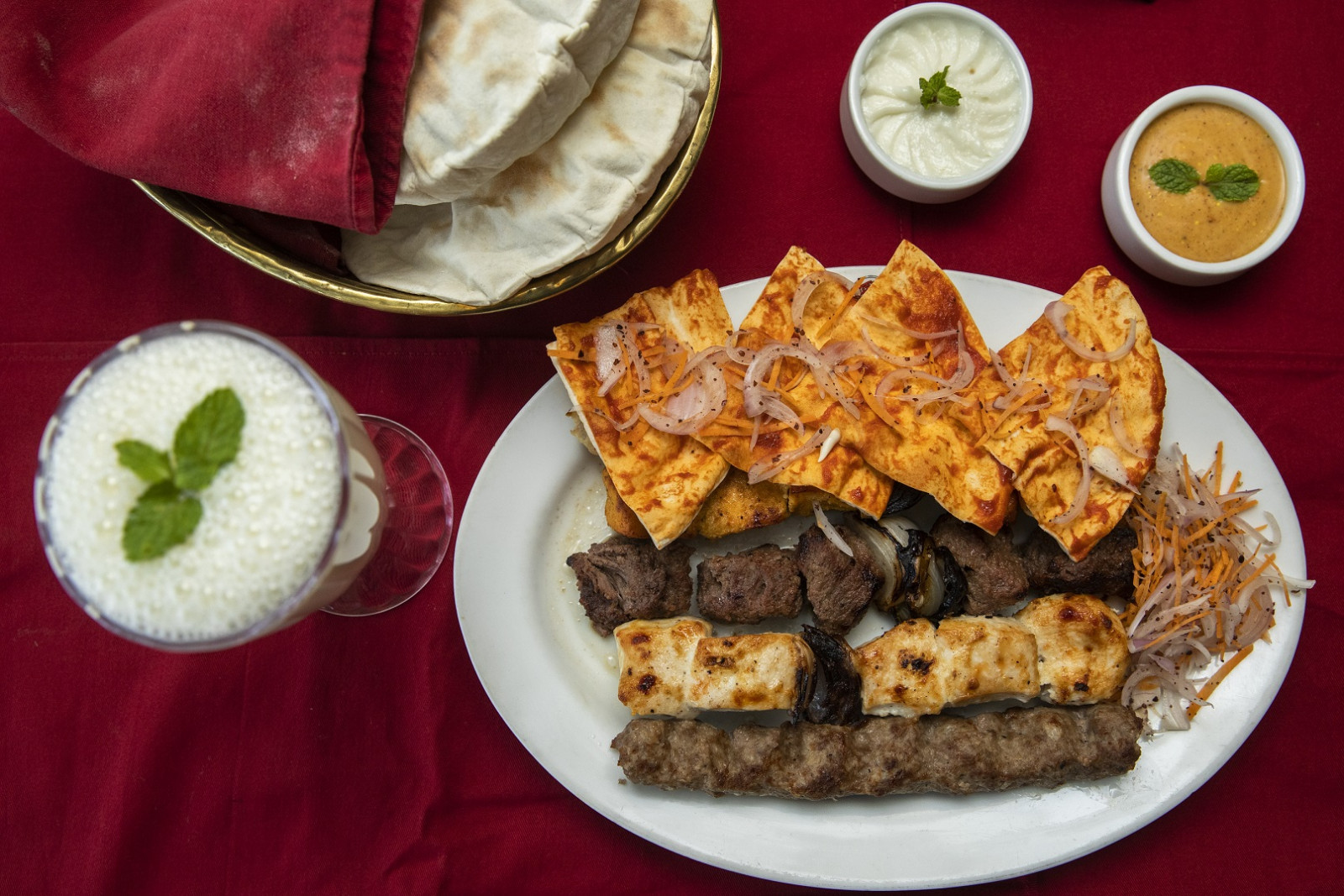Lebanese food: A cuisine steeped in history and geography
Lebanese cuisine was heavily influenced by occupying powers and many new dishes were added to the cuisine throughout its history

"The secret of success in life is to eat what you like and let the food fight it out inside."
-Mark Twain
I first tried Lebanese cuisine at dinner party, which also featured Middle Eastern cuisines, a few years ago. The dinner party was hosted by the Iran Cultural Centre in Dhaka.
The taste of the tender lamb kafta amazed me as it melted in my mouth.
Lebanese cuisine is very popular world-wide, among all Middle Eastern cuisines.
So, what makes Lebanese cuisine so special? Although, the food has similarities with cuisines from Syria, Greece, and Turkey, the reason why Lebanese food is so good is because of its connection to its origin.
For thousands of years, Lebanese cuisine focused on herbs, spices, and fresh ingredients. Mint, parsley, oregano, garlic, allspice, nutmeg, and cinnamon are the most common seasonings and spices used in Lebanese dishes.
Using fresh ingredients, mostly grown locally or in the nearby region to conserve freshness, is one of the specialties of Lebanese food.
The most popular Lebanese dishes, including "kibbeh" "hummus" and "manoosh," are rooted with the ancient times.
Known as the Lebanese national dish, kibbeh is popular in Levantine cuisine. It is made with spiced ground meat and bulghur (cracked wheat). In Lebanon, the dish is usually served with pita bread.
Tabbouleh, a popular salad has been an important Arabic diet since the Middle Ages. The vegetarian salad has different variations in different Arab countries. However, its basic ingredients include parsley, tomatoes, mint, onion and soaked bulgur. These ingredients are then seasoned with olive oil, lemon juice, salt and sweet pepper.
This salad originated from the Mountains of Lebanon and Syria.
Hummus is a common dip served with pita bread in many Middle Eastern counties and a popular Lebanese dish. The savoury dish is made with mashed chickpeas mixed with spices and lemon juice. Tahini (sesame seed paste) is used in the Lebanese version of hommus.
Besides the local dishes, Lebanese cuisine was heavily influenced by occupying powers and many new dishes were added to the cuisine throughout its history.
Among others, The Ottomans, French, and English were the occupying powers who left their marks on Lebanese cuisine.
Influence of The Ottomans
The Ottoman Empire had ruled Lebanon from 1516 to 1918 and introduced a range of food items, which became signature dishes of the Lebanese cuisine as the years progressed.
The Ottomans added lamb as meat of choice in Lebanese cuisine.
The famous dessert baklava was also a gift from the Ottomans to the Lebanese.
Turkish coffee was introduced to Lebanese cuisine as well. Over the years, the Turks also exported a wide range of nuts, fruits and breads to Lebanon which eventually became a part of the cuisine.
Olive oil, stuffed vegetables and Laban (a special type of yogurt) became part of the cuisine due to the Turks.
Influence of The French
After the World War I (1914–1918), France ruled Lebanon until the country won its independence in 1946. Back then, Lebanese cuisine again went through changes. The French brought butter croissants, pie, pudding etc. to Lebanon.
Basic ingredients
Lebanese dishes include a core set of ingredients. Here's a look at some of the key ingredients in Lebanese cuisine.
Za'tar
Za'atar is a special kind of seasoning mix made with thyme, roasted sesame seeds, sumac and salt. It is considered the flavour of Lebanon and is used in pretty much every dish. Za'atar perfectly complements almost any kind of meat. In Lebanon, it is also used in any veggie-based soup to highlight all the natural flavours.
Pickles
Perhaps the most popular ingredient in Lebanon is pickles. The Lebanese use pickle in pretty much everything - starting from salad to meat. Turnip pickles are usually steeped with beets, which imparts a lovely rosy-pink colour. You will find pickles in traditional Lebanese dishes such as mezze plates, in wraps and on Lebanese pizzas. Pickles are also on famous falafel as well.
Sumac
Another zesty spice, Sumac is often used to season meat and vegetables. Often times it is sprinkled over salads, such as tabbouleh and fattoush. It is also added to dips such as hummus and labne. It is also one of the key spices used to make za'atar and sujuk.
Sesame Seeds
In Lebanese cuisine, sesame seeds are heavily used in various ways. These seeds are used to make tahini, which is eaten as a standalone dip or as a sauce on Lebanese shawarma. However, the sesame is also used in many sweet dishes.
Olive Oil
Lebanese dishes are made with olive oil. It is used in almost every traditional dish, including falafel, hommus, tahini, manoosh, labneh, tabbouleh, kibbeh, kafta.



 Keep updated, follow The Business Standard's Google news channel
Keep updated, follow The Business Standard's Google news channel















